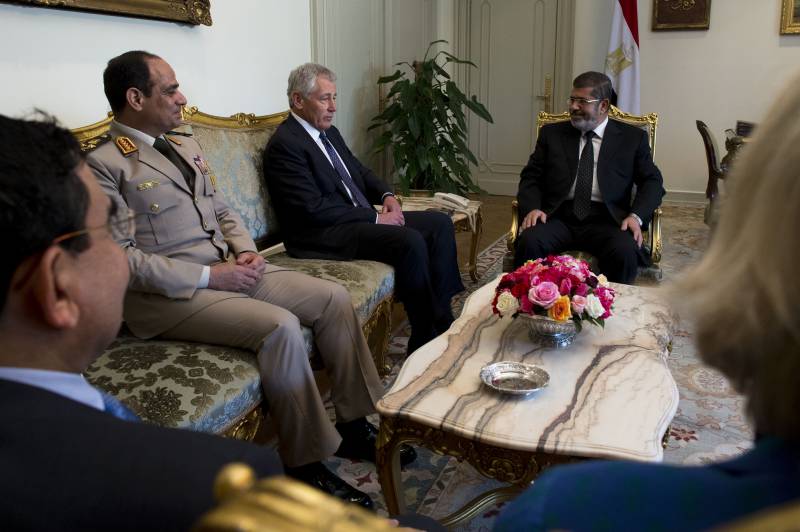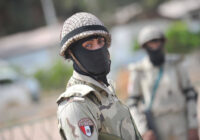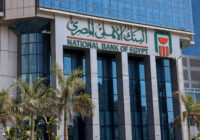The battle for political change in Egypt is not only hampered by the government’s relentless repression.
Egypt has moved closer to labeling militant soccer groups as terrorist organizations. These groups form the backbone of opposition to autocratic rule, with the recent arrest of five alleged members of Ultras White Knights (UWK), the highly-politicized, street battle-hardened support group of Al Zamalek SC.
The five men — Sayed Ali, Seif Kamel, Mahmoud el-Domiati, Abdallah Ghoneim and Anas Tawfik — were arrested on charges of joining a “terrorist entity” and attempting to topple the regime of General-turned-President Abdel Fattah el-Sisi. The fans were first questioned by state security prosecutors on April 13, and they are scheduled to appear again before the prosecution on April 24, according to Daily News Egypt. The paper quoted Revolutionary Socialists, a left-wing group, as saying the five men were being held separately in different prisons.
The fans were detained on the basis of a law adopted earlier this year. The law defines any group “practicing or intending to advocate by any means to disturb public order, or endanger the safety of the community and its interests, or risk its security or harm national unity” as a terrorist entity.
The employment of the law against the fans follows two failed attempts by Mortada Mansour, the controversial president of Zamalek, to persuade Egyptian courts to ban the UWK as a terrorist organization. Mortada has accused the group of trying to assassinate him. The courts refused to rule on his petition, asserting they were not the competent authority.
It also follows the dispersal on April 12 of an anti-government protest near Cairo’s Tahrir Square, the scene of mass protests in 2011 and 2013, which toppled President Hosni Mubarak and then paved the way for a military coup against President Mohammed Morsi, Egypt’s first and only democratically elected leader.
The demonstration was staged by Ultras Nahdawy, a group formed by UWK members, and also supporters of Ultras Ahlawy — which is associated with Zamalek’s arch rival, Al Ahli SC. Over the past year, Ultras Nahdawy has been a driving force behind anti-government protests on Egyptian university campuses.
The latest protest was one of some ten flash demonstrations across Cairo — weekly incidents often led by soccer fans and students, whose protests have largely been driven off campus by increased control by security forces.
“We are looking for [an] alternative outside the campus. We have managed to do so in neighborhoods and smaller universities that are less controlled,” said Yusuf Salheen, a 22 year old leader of Students Against the Coup. “We’re looking at new strategies and options given that the risk is becoming too high. We are absolutely concerned that if we fail, things will turn violent. Going violent would give the regime the perfect excuse. We would lose all public empathy.”
Students Against the Coup was formed after a brutal crackdown in 2013 on protests led by the Muslim Brotherhood, following the overthrow of Morsi. The group, alongside Ultras Nahdawy, has moved beyond its support for the Brotherhood. Now, it is positioning itself as a defender of the ideals that fueled the popular revolt in 2011. It views itself as a bulwark against radicalization of a new generation — prevalent among militant soccer fans, who played a key role in the overthrow of Mubarak and subsequent anti-government protests.
New levels of repression by Sisi’s government, which have resulted in the death of more than 1,400 protesters and the arrest of thousands, constitute a feeding ground for radicalization.
“This is a new generation. It’s a generation that can’t be controlled,” said a founder of the UWK, who has since distanced himself from the group. “They don’t read. They believe in action and experience. They have balls. When the opportunity arises, they will do something bigger than we ever did.”
The emergence of a new generation, coupled with the recognition by soccer fans and students that Morsi’s government is history and cannot be restored, has prompted them to focus on reviving the ideals of the 2011 uprising, sparking differences within the protest movement, particularly with those who join sporadic neighborhood demonstrations.
“The people in the street protesting now fall into two simple categories — the first are over 30 and believe all this nonsense that Morsi is coming back to rule again, and that the coup will be defeated. The second group is under 30. We all realize that this is leading us to no victory, but we can’t stop,” a 20-year-old law student in Cairo told Middle East Eye. “The numbers have sharply decreased. All of those still in the streets, I can swear that they have a [personal] vendetta with the regime, a relative who was killed or a relative detained in prison right now. My brother-in-law is in prison right now facing a sentence of 10 years, and I just can’t stop. I know that there is no point to what we are doing, but it is better than doing nothing.”
The uphill battle of soccer fans and students for political change is not only hampered by the government’s relentless repression. It also is stymied by widespread apathy of the Egyptian public. These individuals are disillusioned by the failure of the 2011 revolt to bring reform; they are tired of political volatility; and they are desperate to see their country return to stability and trickle-down economic growth. These Egyptians may be less starry-eyed about Sisi’s ability to deliver, but they see no viable alternative.
“The protesters have nothing to offer. The government will crush them. Sisi is not perfect, but he’s all we have. What we need is stability to turn the economy around. If that means putting people in jail, so be it,” said a shopkeeper in one of Cairo’s upmarket neighborhoods.
The views expressed in this article are the author’s own and do not necessarily reflect Fair Observer’s editorial policy.
Photo Credit: US Department of State / Ash Carter / Flickr
 We bring you perspectives from around the world. Help us to inform and educate. Your donation is tax-deductible. Join over 400 people to become a donor or you could choose to be a sponsor.
We bring you perspectives from around the world. Help us to inform and educate. Your donation is tax-deductible. Join over 400 people to become a donor or you could choose to be a sponsor.
Support Fair Observer
We rely on your support for our independence, diversity and quality.
For more than 10 years, Fair Observer has been free, fair and independent. No billionaire owns us, no advertisers control us. We are a reader-supported nonprofit. Unlike many other publications, we keep our content free for readers regardless of where they live or whether they can afford to pay. We have no paywalls and no ads.
In the post-truth era of fake news, echo chambers and filter bubbles, we publish a plurality of perspectives from around the world. Anyone can publish with us, but everyone goes through a rigorous editorial process. So, you get fact-checked, well-reasoned content instead of noise.
We publish 2,500+ voices from 90+ countries. We also conduct education and training programs
on subjects ranging from digital media and journalism to writing and critical thinking. This
doesn’t come cheap. Servers, editors, trainers and web developers cost
money.
Please consider supporting us on a regular basis as a recurring donor or a
sustaining member.
Will you support FO’s journalism?
We rely on your support for our independence, diversity and quality.








Comment